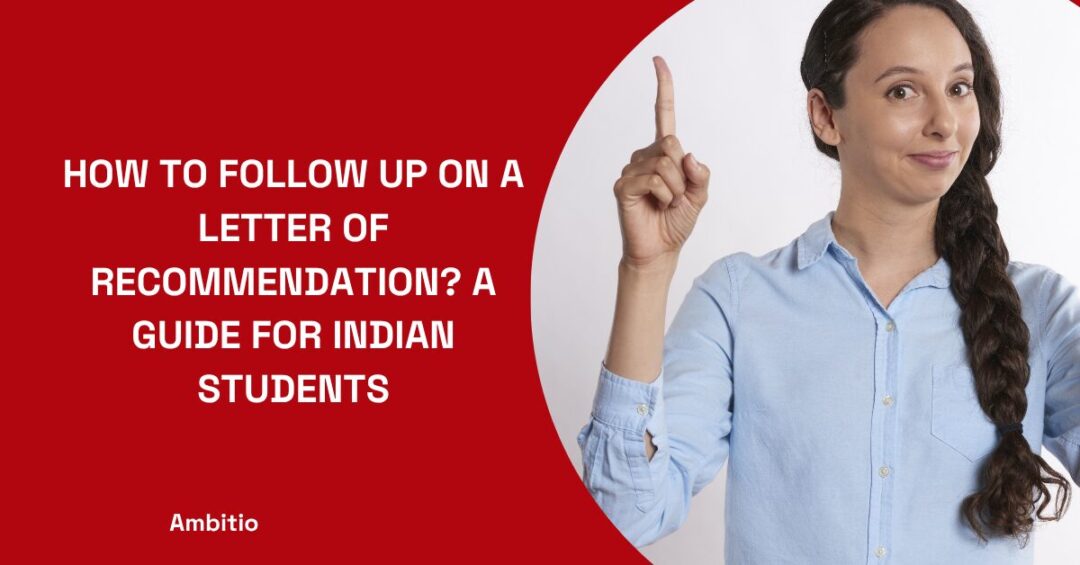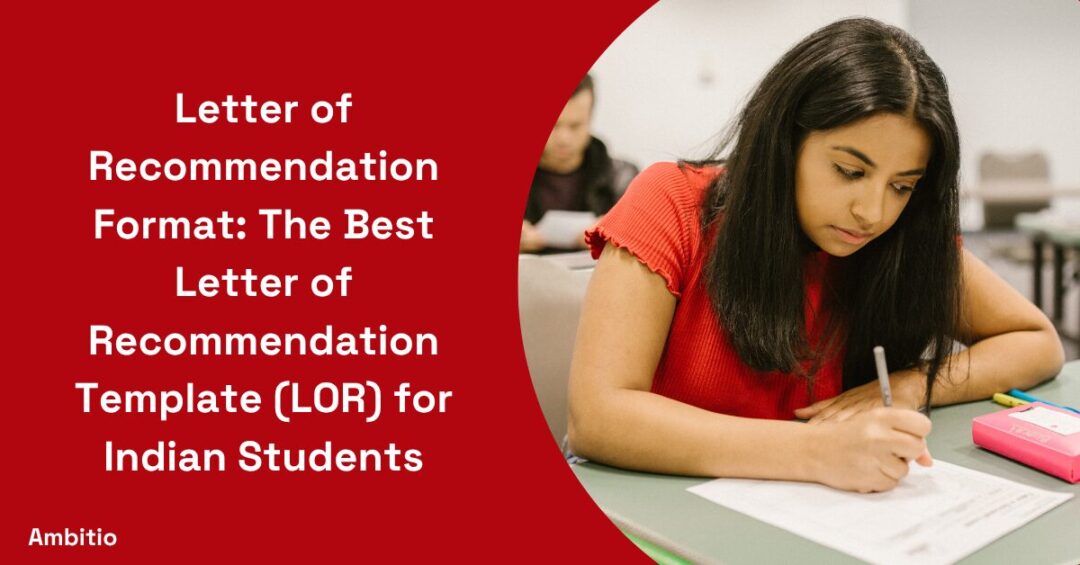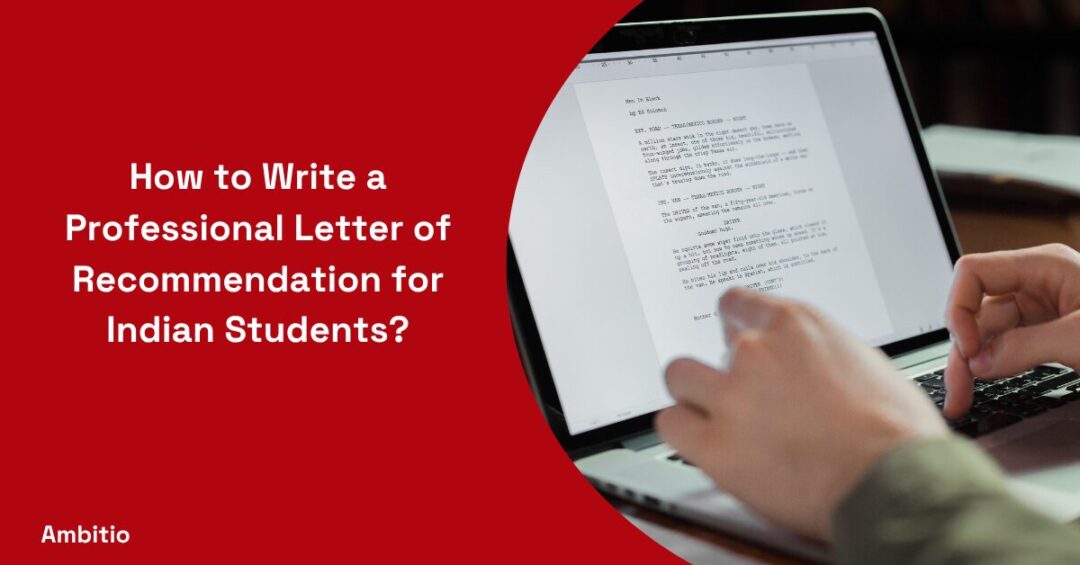22 July 2025
7 minutes read
How to End a Letter of Recommendation (10 Best Tips to Write a Letter of Recommendation or Recommendation Letter for Indian Students)?

Key Takeaways
- How to end a letter of recommendation matters as much as the introduction—it should reinforce your support with a confident, memorable closing line.
- How to end a letter of recommendation can influence how the reader perceives the candidate’s future potential and overall suitability.
- How to end a letter of recommendation requires a balance of professionalism and sincerity to leave a powerful final impression.
A good letter of recommendation can be the secret ingredient to a successful university application, particularly for Indian students wishing to apply abroad.
Not only does it encompass the personal qualities and professional traits of the student, but it also conveys the candidate’s credentials, guarantees the student’s qualifications, and is a crucial endorsement for potential employers or admission committees.
Understanding how to write your letter correctly, from a strong opening to a strong conclusion, is important. You will find that many professionals are often asked to write a letter, but have never done so. What they often do not consider is how important each section is, particularly the conclusion.
This guide will break down every component of a letter, from the letter’s purpose, how to use a business letter format, letter tone, and an appropriate conclusion. Soon you’ll know how to write a strong recommendation letter that is brief and to the point!
Why Do You Need to Write a Letter of Recommendation for University?
Did you know that recommendation letters provide one of the few opportunities for universities to hear from someone other than the applicant? They add credibility and real-world context to a student’s strengths.
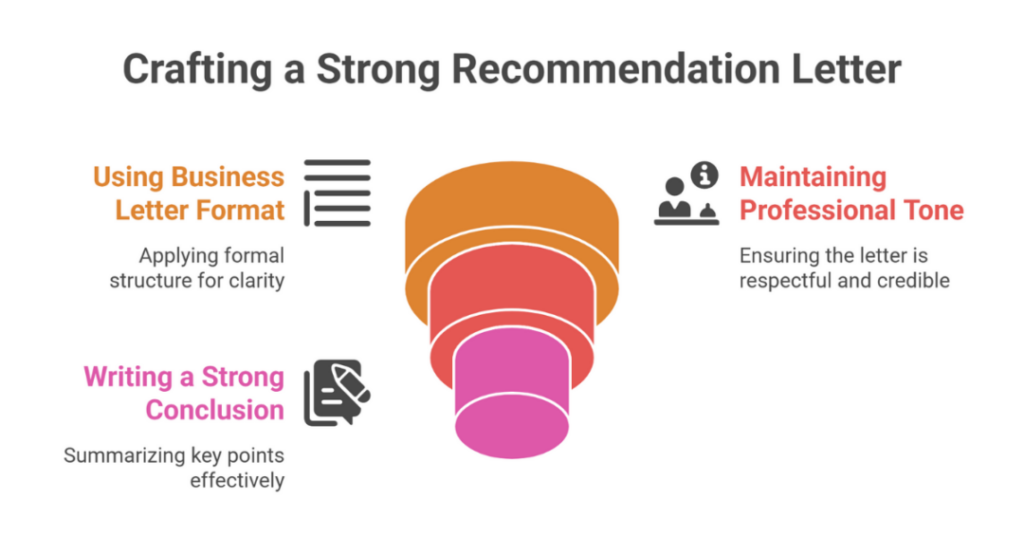
A well-written recommendation letter can:
- Reflect the student’s GPA, leadership qualities, and interpersonal skills in a non-boastful tone.
- Support the personal statement, transcript and statement of purpose by offering additional insights.
- Vouch for the student’s strong work ethic and genuine passion for the chosen field.
- Offer a recommendation from a person who knows the student well, which may concern the suitability for the program.
- Help admission officers assess if the student will be a good addition to your team.
How to Write an Effective Letter of Recommendation or Reference Letter?
A fun fact: The most impactful LORs are those that “show” more than they “tell”—they include specific examples that illustrate a candidate’s skills.
Here are the steps to follow to write a solid letter:
- Know the person you are recommending. Personalize the letter with stories and anecdotes that clearly indicate familiarity.
- Be specific about talents, skills, and roles, such as leadership skills, interpersonal strengths, etc.
- Finally, write a recommendation letter that strikes a balance between professional and personal; the goal is to be authentic while avoiding a robot-like tone.
Example Table: Effective vs. Ineffective Letter Features:
| Feature | Effective Letter | Ineffective Letter |
|---|---|---|
| Tone of the Letter | Warm, genuine, and professional | Generic and overly formal |
| Body of Your Letter | Uses examples and anecdotes | Just states qualities without evidence |
| Concise | Clear and to the point | Long-winded with repetitive language |
What are the Key Characteristics of a Strong Recommendation Letter?
Here’s a surprising truth: The strongest letters are often not the longest—they are the most impactful.
Key characteristics to include:
- Strong work ethic backed by specific examples.
- Leadership qualities with clear situations that demonstrate them.
- Suitability for the program in question, supported by details.
- Endorsement with a formal closing that reflects genuine belief.
- Professional language that fits various professional and academic contexts.
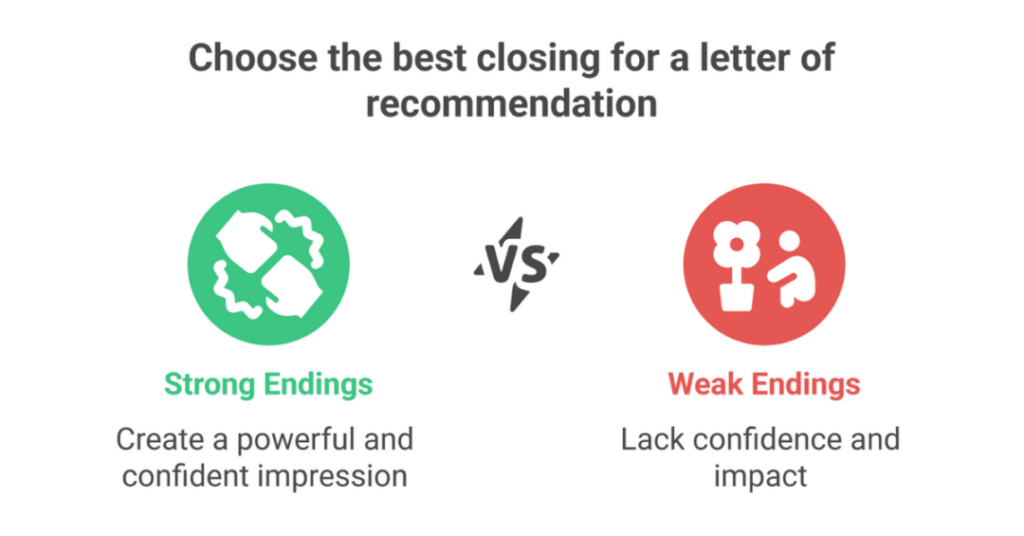
Table: Key Traits of a Strong Letter:
| Characteristic | Description |
| Personal-Qualities | Reflects personality beyond achievements |
| Professional Language | Uses formal tone, yet maintains a natural voice |
| Job Title Mentioned | Identifies recommender’s authority clearly |
| Good Impression | Leaves a positive, lasting image of the candidate |
| Vouch for Strengths | Authentically endorses the student’s capabilities |
How to Start a Formal Letter of Recommendation or Recommendation Letter?
The first few sentences of a letter often determine whether the rest of the letter will be taken seriously or read as a ‘filler’. A strong opening to the letter can be beneficial to the tone of the letter.
So here are some ways to do it well:
- If possible, know the recipient. Some kind of salutation is much more powerful than “To whom it may concern”.
- In your first paragraph, make sure you say what the purpose of the letter is in a clear and direct manner.
- Provide your job title and your connection to the student.
- Indicate how long you have known the student, which adds weight to your observations.
- Set a tone in the letter that is sincere yet formal which is appropriate for a business-letter.
Table: Starting Phrases and What They Accomplish:
| Starting Phrase | What It Achieves |
| “It is my pleasure to write this letter…” | Sets a positive, willing tone |
| “I have known [Name] for three years…” | Establishes credibility |
| “As [Job Title], I had the opportunity…” | Highlights authority and perspective |
How to End a Letter of Recommendation?
Here’s a fun fact: Just like a strong handshake, a strong closing while sending the letter can have a lasting impact.
Here are a few suggestions for a strong letter-writing closing:
- Use an appropriate closing that reflects your confidence in the statement. For example, “I wholeheartedly recommend” is more powerful than “I recommend.”
- Restate your recommendation of the student; you might want to also add that you are excited about his/her/their future.
- The close should maintain professionalism; use formal closing language and offer best wishes, ‘sincerely’, or something of that nature.
Table: Good vs. Bad LOR Endings:
| Ending Type | Example | Impact |
| Strong and Positive | “I wholeheartedly recommend [Name]…” | Leaves a powerful impression |
| Less Formal | “Feel free to contact me if…” | Invites further engagement |
| Weak or Vague | “I think [Name] would do okay…” | Lacks confidence |
Specific Examples of an LOR Ending
Interesting fact: Admissions officers tend to remember closing lines more than opening lines.
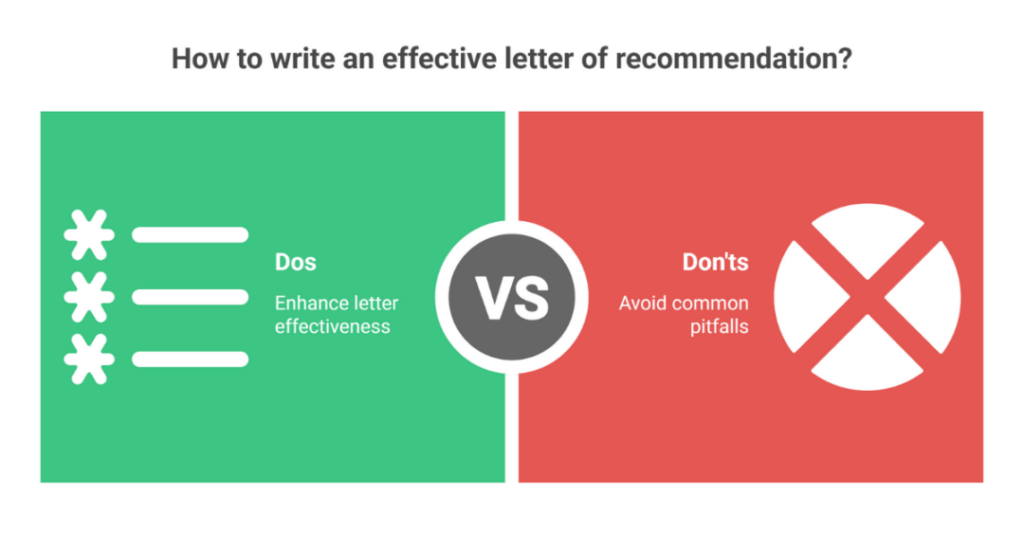
For example:
- Example 1: “I believe [Name] will provide an excellent addition to your program. I suggest her without reservation.”
- Example 2: “In view of the candidate’s qualifications leadership ability and his academic consistency, I believe he will achieve great success at your university.”
- Example 3: “It has been my pleasure to work with [Name], and I am consistently impressed and happy to recommend her for admission.”
Letter of Recommendation Template for University
A surprising stat: Universities like Oxford and Cambridge receive thousands of applications, and a well-crafted letter can make all the difference.
Here’s a recommendation letter template you can adapt:
[Your Name]
[Your Job Title]
[Institution Name]
[City, Country]
[Email Address]
[Phone Number]
[Date]
To whom it may concern,
I am excited to write a letter of reference for [Student Name], who had the pleasure of being my student in [Subject] at [University Name] for the past [X years].
During this time I have always been impressed with [Student’s First Name] ‘s academic success, her leadership capability and strong social skills. Her GPA indicates she has worked very hard over the time period of her education with me and I have no doubt that she has a true feel for research given the dynamics of our collaborative project.
One unique contribution that will be a lasting impression of her dedication was her capstone project on [Topic] where she showed independent analysis and commitment to excellence. This quality is also representative of her potential to engage in graduate studies at a top institution like Oxford.
Academically she is a natural leader as well as an exceptional team player. Her lifelong learning skill of communication is mature and her presentation and professional demeanor can be maintained throughout different professional situations.
I have no doubt that [Student’s First Name] will succeed at what you will push her in and be a great asset to your team. I have no reservations in recommending her to your esteemed institution.
Sincerely,
[Signature]
[Your Full Name]
Top 10 Tips for Writing a Strong Letter of Recommendation
Here’s a tip: Even if you’re maintaining a professional voice, don’t be afraid to make it personal.
- Familiarize yourself with the application process and tailor your letter accordingly.
- Always use a letter format to give your letter the clearest structure.
- Understand the recipient or develop a tone depending on the university.
- Make your endorsement meaningful and thoughtful.
- Don’t use boilerplate language; write your letter using personal stories.
- Be brief and avoid unnecessary details.
- Be honest about the applicant’s strengths and areas to improve.
- Include qualifications and metrics, such as cumulative GPA and test scores like IELTS, TOEFL, GRE, GMAT, SAT and ACT.
- Read your letter for grammar and punctuation mistakes.
- Depending on the relationship with the applicant don’t forget to add closing lines that assures a good regard.
Table: Quick Dos and Don’ts:
| Do | Don’t |
| Use professional-language | Be overly casual |
| Tailor each letter to the job description | Send a generic copy |
| Add your job title and contact details | Miss important details |
How to Choose People to Recommend You?
Here’s a truth bomb: The right recommender can make or break your application.
Choose someone who:
- Knows your personal qualities and academic performance.
- Understands the purpose of the letter and can reflect your compatibility.
- Holds a respectable job title or position in an academic or professional setting.
- Has observed your leadership abilities in action.
- Can write a well-written recommendation with genuine insights.
Table: Ideal vs. Less Ideal Recommenders:
| Ideal Recommender | Less Ideal Recommender |
| College Professor (knows you well) | Manager from a short internship |
| Project Supervisor (has worked with you) | Acquaintance or distant relative |
Conclusion
A recommendation letter is not simply something that is customary—a recommendation letter is a persuasive business letter that indicates a great deal about a student’s strengths. An effective recommendation will be compelling because of the correct format, writing style and tone, examples provided, and appropriate closing.
Follow these tips with the help of Ambitio to master letter-writing with confidence and clarity.
FAQs
How to end a letter of recommendation to make a strong final impression?
To understand how to end a letter of recommendation that leaves a lasting impact, use confident, supportive language. Knowing how to end a letter of recommendation with sincerity can elevate the entire letter.
How to end a letter of recommendation without sounding too generic?
If you’re wondering how to end a letter of recommendation uniquely, choose specific phrases like “wholeheartedly recommend” or “a valuable asset.” How to end a letter of recommendation effectively means avoiding clichés.
How to end a letter of recommendation when writing for a top university?
When considering how to end a letter of recommendation for elite schools, keep the tone professional and tailored. How to end a letter of recommendation for Oxford or Cambridge requires clarity and enthusiasm.
How to end a letter of recommendation for a student applying abroad?
The key to how to end a letter of recommendation for international applications lies in using global language standards. How to end a letter of recommendation in such cases should reflect cultural awareness and professionalism.
How to end a letter of recommendation if you don’t know the recipient?
If you’re unsure how to end a letter of recommendation addressed to an unknown person, use formal closings like “To whom it may concern.” How to end a letter of recommendation in such scenarios should still sound personal.
How to end a letter of recommendation for a candidate with strong academic skills?
To learn how to end a letter of recommendation for an academically gifted student, emphasize qualities like GPA and research potential. How to end a letter of recommendation should reflect genuine belief in their success.
How to end a letter of recommendation when you’re short on time?
If you’re pressed for time and unsure how to end a letter of recommendation, rely on concise yet powerful phrases. How to end a letter of recommendation doesn’t require length—just authenticity and clarity.

You can study at top universities worldwide!
Get expert tips and tricks to get into top universities with a free expert session.
Book Your Free 30-Minute Session Now! Book a call now















